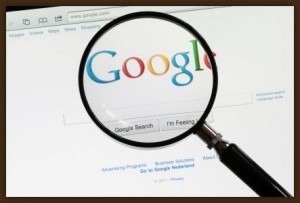Searching for Information on the Internet Is Easy; Pursuing Understanding Is Hard
Facts are cheap. We have access to nearly every piece of data we could possibly want through the Internet. The value of information as a raw material has dropped precipitously, with the exception of some time-sensitive subjects, like finance and the news, where speed still commands a price. But for most of us, the only cost of accessing information is the constant and inescapable presence of advertising.
What we need is the ability to bring those facts together into a compelling narrative. The synthetic act of understanding, of seeing how pieces of information work together and make a meaningful whole, is a skill that no amount of Googling can ever teach us.
Understanding and is the currency of our increasingly fragmented world; demand for the ability to gain and convey understanding has skyrocketed as the amount of accessible information has increased.
Understanding requires intimacy with a subject. It is the fruit of a sympathetic attentiveness, a willingness to consider carefully what is before us with the peculiar desire to learn more about it—rather than (necessarily) determine whether what you think about it is true. Understanding also comes in degrees—one person may understand astrophysics more than another, but both people would certainly understand more than I do. And sometimes the fullness of understanding requires living inside a subject and seeing it from within. We might understand how baseball works on the surface: three strikes makes an out, three outs in an inning, and base runners advance a base on a balk. But the game’s texture and dynamics often remain opaque to us who have never had first-hand familiarity with the players and clubhouse. We do not see how the game really works, how all the moving parts work together, and how the “intangibles” play out on the field.
Searching for information on the Internet is easy; pursuing understanding is hard. The former meets a felt need quickly and without effort. But the latter enables us to live well and flows from our living well. Google may solve a gap in our information, but the question of how we shall live, of what sort of friends we should seek, whether we should give our money to a charity in Africa or to the homeless man on the street—those are questions that will seize our attention when we place ourselves in environments where they arise. If we never encounter poverty, we may struggle to seriously wrestle with how we should use our resources. To know how we must respond, we must understand ourselves and the world, see how they work, and discern the peculiar shape of life to which we have been called. All the reading or browsing in the world is insufficient to give us wisdom without reading and questioning ourselves along with it.
Compared to the easy answers to surface questions, the long, tumultuous, and frequently painful work of seeking understanding seems really hard and generally useless. I understand why my students kicked against my methods and occasionally complained that I was being “mean.” Their habits of mind have been trained in a very different direction, as have all of ours. But questioning well means more than “finding an answer” so that we can simply get on with our lives. Those who inquire well must move from answers to understanding, from the instant gratification of our need for comfort and security toward the deepened desire for the enduring good of wisdom.
—Matthew Lee Anderson, The End of Our Exploring: A Book about Questioning and the Confidence of Faith (Moody, 2013), 71-72.
Justin Taylor's Blog
- Justin Taylor's profile
- 44 followers




